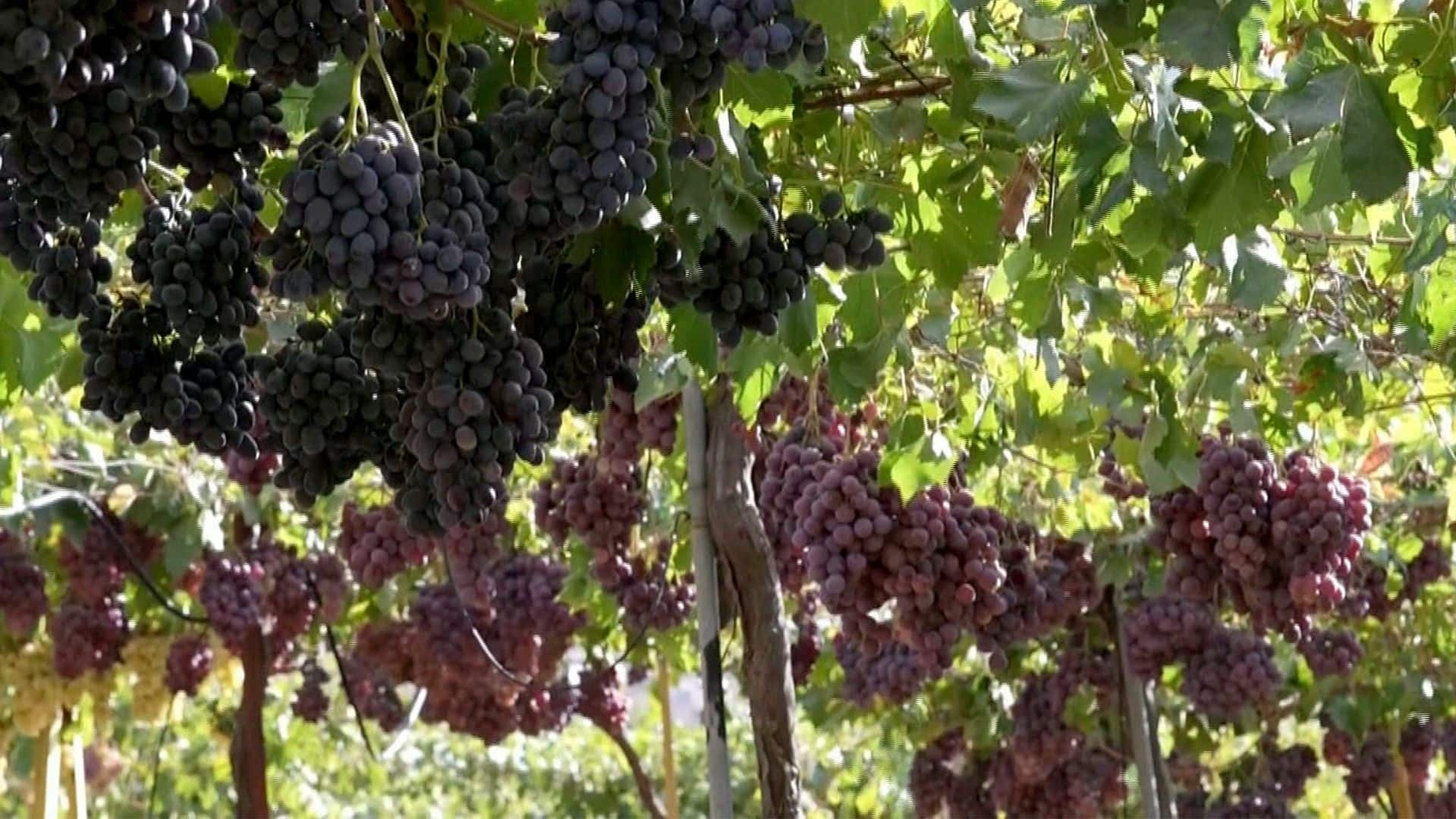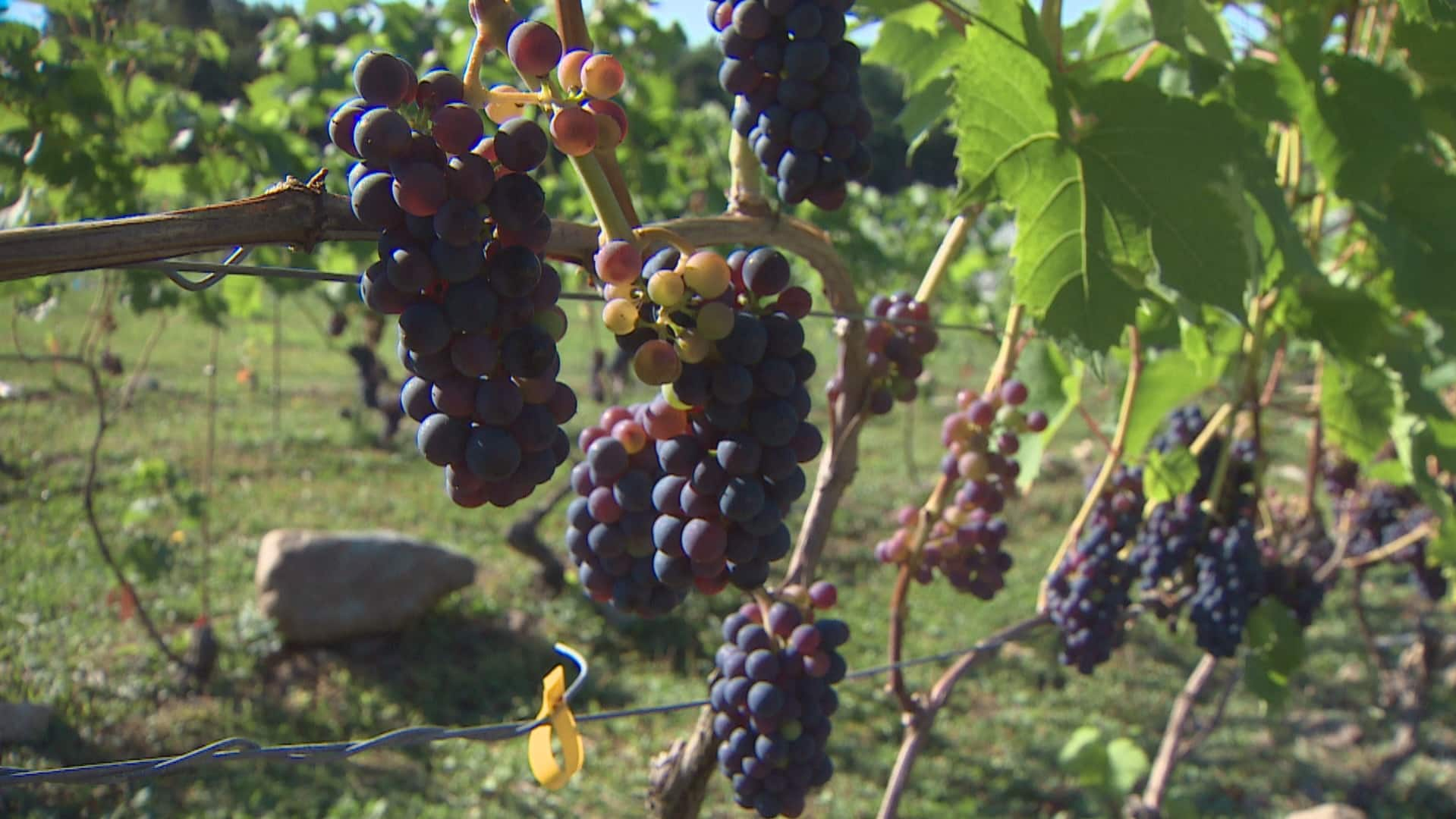A growing number of winemakers are embracing sustainable practices in the face of extreme weather

Wine industry challenged by volatility from climate change
Canada’s wine industry is adapting to new challenges brought on by increased volatility in the weather brought on by climate change.
Extreme weather continues to hit the global wine industry hard, but winemakers and grape growers in Ontario's Niagara region are finding ways to adapt to mitigate the effects of climate change.
Spring frost blasted through France last year, which resulted in the country experiencing its smallest harvest since 1957, costing the industry around $2 billion US in sales. But a growing number of winemakers in Europe are embracing sustainable practices to conserve energy, reduce water and maintain healthy soils in the face of extreme weather.
Some wineries in Ontario's Niagara region are following suit to adapt to the effects of climate change such as drought, heat waves and prolonged rainfall.
"I cringe at the words polar vortex," said Bob Nedelko, the owner of Ivan's Vineyard, referring to the weather phenomenon that often pushes cold, Arctic-like conditions to southern Canada and has been known to destroy entire grape crops in the province.
I cringe at the words polar vortex.
– Bob Nedelko, Ivan's Vineyard
The Niagara winemaker said he was prepared to experience good years and bad when he bought his vineyard in 2008, but climate change wasn't something he thought about. That's now changed.

"I've been able to witness some of the effects of it over time," he said.
Nedelko said heavy rains last fall, followed by freezing temperatures, caused some of his vines to die.
Extreme and unpredictable weather damages vines
Early estimates show around 50 per cent of grape vines in Ontario were damaged by extreme temperatures. The loss rate for crops is usually 10 to 15 per cent, Oppenlaender noted, and the last time a significant loss like this happened was in 2005.
"Depending on the extent of the damage, it takes us a couple of years to come back to a full crop and that's providing that Mother Nature will be kind to us over the next couple of winters."
It's reasons like these that growers like Nedelko are embracing sustainable practices to withstand some effects of climate change.
"You can see the amount of weeds here," he said, pointing between rows of gewürztraminer vines. "There's no herbicide being used."
Some vineyards encourage natural flora to grow between the vines, or plant cover crops like buckwheat or clover, a practice that has been shown to help manage weeds, control vine growth, improve soil health and reduce erosion.

Nedelko is not alone in embracing sustainable practices. His vineyard is one of 53 listed by Sustainable Winegrowing Ontario Certified (SWO), which certifies wineries and vineyards as sustainable.
The organization says it takes into account how vintners and growers manage a variety of factors that relate to sustainability, including soil health, biodiversity, water management, waste management and energy efficiency.
Participants then undergo third-party auditing annually to ensure they adhere to these environmentally sustainable practices.
"There's a big focus on trying to understand when is the best time to water or irrigate the grapes. How little is enough? How can we look at reducing the amount of water?" said Andrea Kaiser, chair of SWO and brand manager at Reif Estate Winery in Niagara-on-the-Lake.
Kaiser said wineries and grape growers are increasingly dealing with the effects of extreme weather and finding sustainable ways to adapt is crucial from an environmental and economic perspective.
"Being sustainable also means being able to keep the farm in business for future generations so that it stays farmland and doesn't become developed," she said.
"There really isn't a choice. This is going to be absolutely critical for the future of our industry."

Nova Scotia's wine industry prepares for climate change
What more extreme weather means for grape growers.
'The science is well established'
Teaching the next generation of winemakers about sustainability and climate change has become a key focus at Niagara College.
"The science is well established," said winemaking professor Gavin Robertson about climate change.
"Mother Nature throws all kinds of different weather at you. But what's new is probably the frequency of extreme, unpredictable weather events. So, farmers need tools to address this."

Robertson said discussing the importance of installing irrigation to ward off drought or setting up wind machines to help pull warm air down on cold nights weren't things winemakers considered decades ago.
But today the conversation is changing among growers in the industry and educators.
"Sustainability, climate change, this is front of mind with everything we do," he said.
"It's no longer maybe a footnote in a PowerPoint slideshow."
Benefits of climate change
Anthony Shaw, professor emeritus at Brock University in Geography and Tourism studies, said there are also some advantages to climate change for wine growers in Ontario.
"We tend to dwell on the negative aspects … but for Canada, there are benefits. So we need to find ways in which we can exploit the benefits."
Shaw said Ontario's temperature has been steadily increasing over the past 50 years and that warming trend has extended the province's growing season allowing popular varietals — like Cabernet Sauvignon, Merlot and Shiraz — to flourish.
Shaw also notes that a warmer climate could expand wine production into areas in Ontario not typically known for it, such as Lake Huron shore, Grey County in the province's southwest and Durham County east of Toronto.
Unprecedented heat waves and drought conditions in British Columbia last year undoubtedly contributed to smaller wine grape crops, but also resulted in smaller grapes that produced a stronger concentration of flavour in the fruit, leading growers to anticipate an excellent vintage from their 2021 crops, despite lower yields.
Shaw warns, however, that a longer, warmer growing season can lead to a fairly wet fall, which can be problematic for growers.
"There is a great deal of volatility. It's not a great industry to be in if you want to sleep well at night," said Shaw.
"All the conditions that could lead to what we call a vintage year, in which you have good quality wine, can be easily smashed by heavy precipitation."
For growers like Nedelko who experienced just that, going sustainable isn't just a good business practice, it's a way to ultimately survive some of the effects of climate change that aren't going away anytime soon.
With files from Reuters, Aura Carreño Rosas and Brady Strachan
*****
Credit belongs to : www.cbc.ca
 MaharlikaNews | Canada Leading Online Filipino Newspaper Portal The No. 1 most engaged information website for Filipino – Canadian in Canada. MaharlikaNews.com received almost a quarter a million visitors in 2020.
MaharlikaNews | Canada Leading Online Filipino Newspaper Portal The No. 1 most engaged information website for Filipino – Canadian in Canada. MaharlikaNews.com received almost a quarter a million visitors in 2020.








